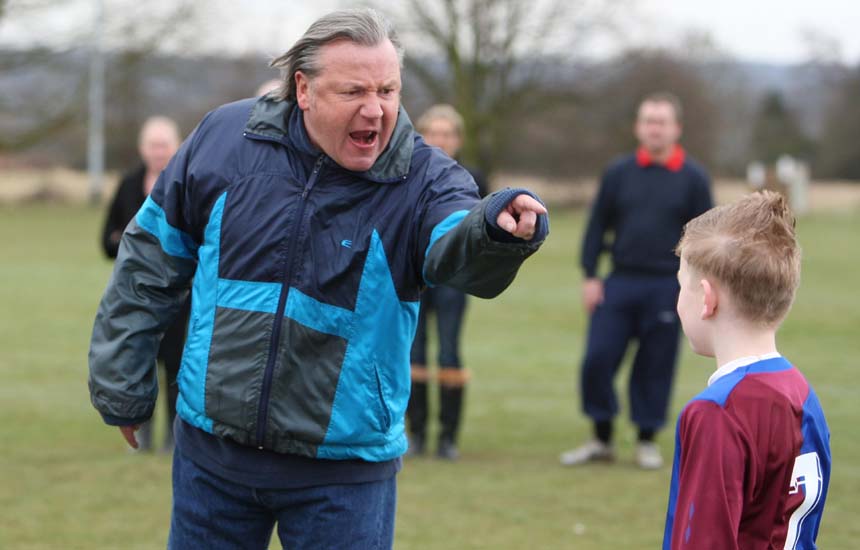
Photo by Lee Mills: Ray Winstone for Football Association via Getty Images
In addition to knowing how your own sports biography can affect your child’s youth sports experience, it’s also important to know what triggers you when you watch your child participate in sports. Triggers are those things that quickly—almost instantly—cause you to become angry or upset when your child is playing and can result in negative behavior. Some of the most common sports parent anger triggers are:
- Seeing your child get injured
- Disagreeing with referee calls
- Believing that the coach is mistreating your child
- Objecting to the way another parent treats your kid
- Thinking that your child is underperforming and not trying hard enough
- Feeling jealous when your child’s teammates experience success on the field
It’s helpful to know your triggers, because once you know exactly what they are, you can more easily learn how to defuse your anger and respond more appropriately in any given situation.
The Most Common Underlying Reasons Parents Overreact When Their Kids Play Sports
1. We see athletics as a way to overcome economic hardship (scholarship seekers).
2. We are overcome by anxiety over whether our child will be competitive and tough enough to succeed in life.
3. We want our kids to succeed where we failed on the field of play.
4. We have a burning desire for our children to follow in our footsteps and replicate our perceived success in a specific sport.
5. We feel vulnerable and exposed when our kids perform or underperform in public. We see our children as extensions of ourselves. We take it personally.
6. We have unresolved emotional wounds stemming from our own experiences in youth sports.
7. We become frustrated when our kids fail to mimic the stylized movements of pro athletes we see on television, though they are clearly not yet physically capable of doing so. They just can’t move that way yet.
De-Triggering: Navigating Emotional Land Mines
Part of learning how to recognize your triggers and defuse them is also knowing how your own sports biography sometimes sparks these triggers. Once you are aware of how your history affects your current perceptions and feelings, you can more easily identify when that is the real reason you are reacting and instead focus on the present and your child’s situation. The following are four methods to strip your comments of biographical undertones.
1. Talk less; listen more. Be a witness and supporter. You don’t need to be a sportscaster parent. Cut the number of times you speak up by 50 percent. Then cut that in half again. Really . . . half, then half again.
2. Say what you see. If you have to talk, say what you see. “The team really picked it up in the second quarter. You guys were moving the ball really well and tightened up defensively.” Yeah, what I saw was that … ”
3. Ask a question. Ask a question rather than making a statement. For example, if you feel your child wasn’t giving it his best, don’t say, “It didn’t look like you were giving it your best out there,” or “You were really dragging it.” Instead try something like, ”Did you feel a bit tired today?”
4. Frame your comments carefully. Remember to recount your child’s genuine and often subtle successes. Don’t criticize or overpraise him. Something simple and focused like, “Boy, that time you fell over and still got up quickly and got back on defense really seemed to help,” sets just the right tone.
From Kim John Payne, Luis Fernando Llosa, & Scott Lancaster. Beyond Winnning: Smart Parenting in a Toxic Sports Environment (Lyons Press, Connecticut, 2013)